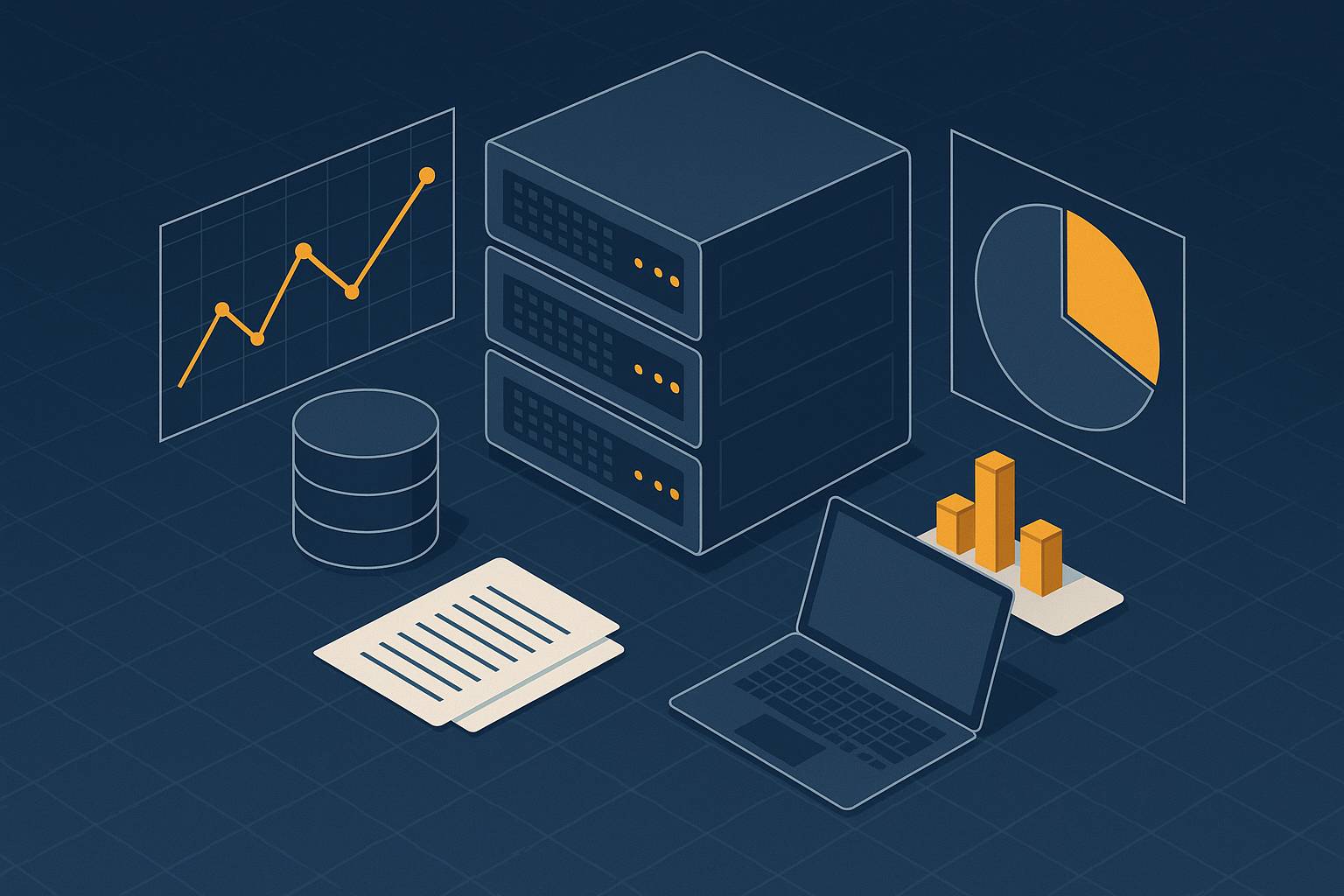
Most French SMEs and ETI companies now have mountains of data at their disposal: customer history in CRM, financial statements, production indicators, sales monitoring, e-commerce data... However, as the latest Bpifrance Le Lab study points out, this data often remains unexploited or exploited in a very partial manner. They sleep in forgotten Excel files, in underused software or in databases scattered between several services.
This paradox is well known: businesses are Data-rich but insight-poor. They have the raw material, but cannot transform it into strategic information to guide their decisions.
The study highlights three main causes.
First, data is scattered, often in silos. The sales department has its tables, the finances its exports, the production its statements. Each team works with its own files, which are rarely harmonized, making a unified and reliable vision impossible.
Second, data quality is a major obstacle. Duplicates, incomplete fields, input errors: trust in information is crumbling. In some cases, hours are lost every week looking for the “right” data or re-entering it.
Finally, even when infrastructure exists, it is underused. High-performance CRMs or ERPs may only work at 30 or 50% of their real capacity, due to a lack of training, time or clear processes. Tools are not enough: without the skill to use them, they become simple storages.
Underexploiting your data does not only mean a loss of efficiency. This has a direct impact on competitiveness and the ability to anticipate. Decisions are then taken on incomplete or even obsolete bases. Growth opportunities — such as identifying high-potential customer segments or detecting trends early — go unnoticed.
In a context where markets are changing rapidly and competition is growing stronger, not transforming your data into actionable insights means moving partly blindly.
The good news is that you don't have to launch a huge project to reverse this trend. The starting point is a clear audit of what exists: what data is available, in what formats, with what level of quality?
Next comes the crucial stage of cleaning and enrichment. Harmonize formats, remove duplicates, complete missing fields... This work is often invisible, but which represents up to 80% of the success of a data project.
Finally, the key to taking advantage of this data lies in analyzing it and putting it into context. This is where AI-enhanced tools are changing the game. A business data co-pilot like StratBoard™ can, based on data already present in the company, provide automatic summaries, detect anomalies, formulate hypotheses and even project different scenarios. AI is not only a calculation engine: it becomes a decision-making partner, capable of alerting and suggesting courses of action.
Your data is not just a passive history of your business. They are a strategic gold mine, capable of revealing opportunities, reducing risks and accelerating your decisions. But like any resource, they require treatment, enrichment and development to deliver their full potential.
By investing in reliability, enrichment and intelligent exploitation of your data, you don't just gain efficiency: you're transforming the way your business drives growth.